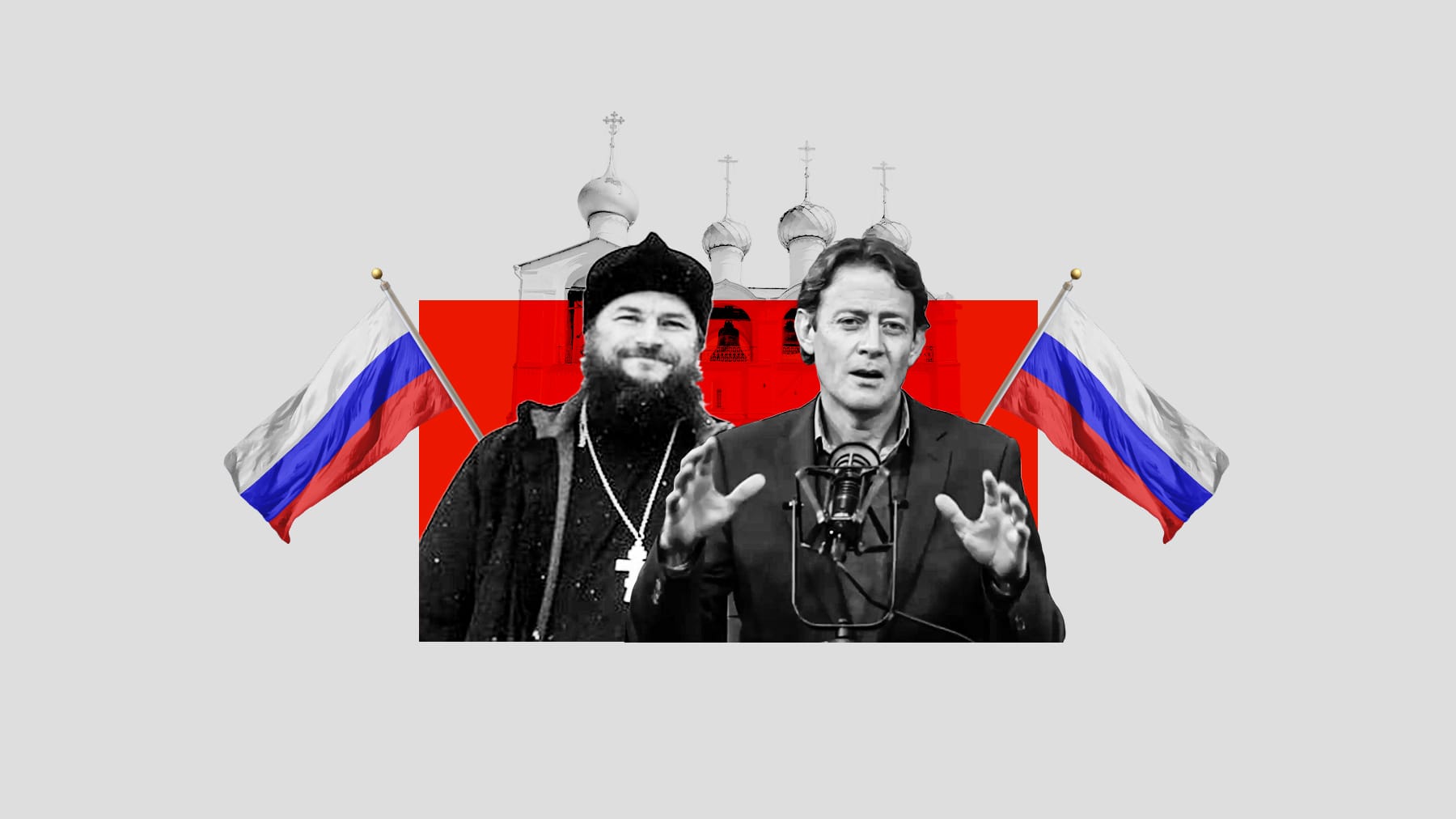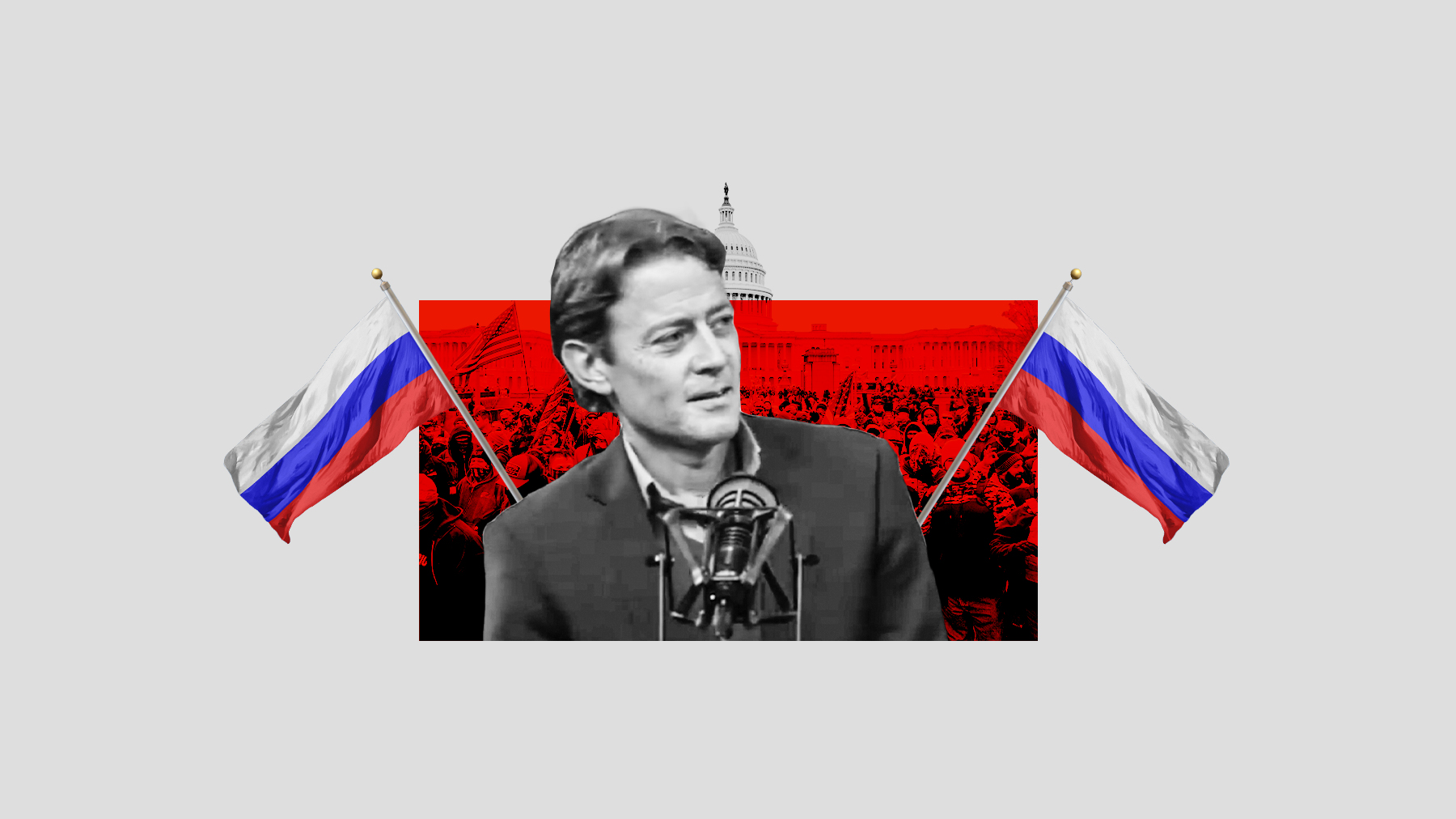"russia is the last bulwark of humanity"

The quote in the title comes from Charles Bausman, a 59-year-old American man who has lived on and off in Russia for the past few decades and has involved himself in various far-right causes throughout the United States since the Trump administration. Bausman is, to put it gently, a strange guy. No one really knows how he makes money, and despite as much, he's lived in Russia on-and-off for a few decades. Today, he retains ownership of close to $1 million worth of property in eastern Pennsylvania, which he appears to have abandoned. He ran a blog called "Russia Insider" and begged a Kremlin-tied oligarch for money once. He's collaborated with a range of far-right figures, including outright white supremacists. An enthusiastic supporter of former President Donald Trump, he fled to Russia sometime in January 2021 shortly after wandering into the U.S. Capitol building on Jan. 6, 2021, amidst a sea of insurrectionists.
You probably haven't heard of Bausman unless you fall into a few niche categories: you read pro-Kremlin English-language websites, for whatever reason, in the mid-2010s; you read alt-right websites, for whatever reason, in the late 2010s; or you are a chairman in the National Justice Party (n.b., not an actual political party) who is tired of people asking why you did an event in Bausman's barn once. I'm sure there are other reasons why you may have heard of this guy, but since I fit the description of two out of three of these,* I'm going to stop there.


Bausman represents the extreme end of the U.S. far right's embrace of a form of Russophilia. He has, unlike many of the edgelord white nationalists who extol the work of Aleksandr Dugin and who chant "Russia is our friend!", tried to encourage substantive, lasting transnational connections between the United States and Russia. (Whether or not they've worked is another question.) But his efforts to encourage Western conservatives to see Russia as a "bulwark" for the traditionalist values that matter to them do align with a general trend amongst some in the U.S. far right to see Russia as, at the very least, an imagined realm — a far-away place to work out their own anxieties around American culture, religion, and politics. (Or, as my husband put it more bluntly, "a Hogwarts for conservatives.") It's appeal, as scholar Sarah Riccardi-Swartz told me for the first article in this series, lies in "what Russia could be for people."
This "imagined" Russia is a land of "no cancel culture," to quote a video clip shared by multiple Russian government accounts in 2022. It's a place where the "woke left" isn't a threat. "Has Putin ever called me racist?" asked then-Fox News host Tucker Carlson in early 2022. Since no one really knows what "cancel culture" is, maybe it doesn't include the systematic oppression of left- and right-wing dissidents under Putin.
For some Christian conservatives, it's a place hated by Western elites for its embrace of traditional values, at least so long as you don't look at weekly church attendance numbers. For some white nationalists, it's a threat to "Jewish power," despite Putin using denazification and the memory of a Soviet victory in World War II as the rhetorical underpinning for waging his war in Ukraine.
Even despite the ongoing war in Ukraine, Russia's crackdown on its LGBTQ+ population has earned praise from throughout the parts of the far right. In July, for instance, the Daily Wire's Michael Knowles praised a Russian bill banning gender-affirming care, saying, "the Russians have it right." Several other prominent right-wing pundits came to a similar conclusion.
There can be political consequences to indulging in these fantasies, of course, but it's important to see these perceptions of Russia for what they are. As scholar Marlene Laruelle has pointed out, "It is important not to conflate influence with confluence." Meaning, even as there's been significantly more reporting on Russian state-tied interference in U.S. elections or various espionage campaigns, the overwhelming majority of transnational relationships are built on a converging of interests — and, as is often the case with nationalists working across borders, this brief moment of unity is often fleeting. (Though not always.)
This isn't to downplay the impact that someone like Bausman can have — clearly someone thinks there's a benefit to putting him on Russian TV — but it helps put some of his more bombastic claims in perspective.
Are there truly "no fewer than 1,000,000 people from the United States" ready to move to Russia, as he said during a panel in Russia's lower house of parliament in February? Don't be absurd. Are white men who are frustrated with "woke" culture eager to pack their bags and settle in some village several hours outside of Moscow, only to find out that Russian verbs of motion are fucking difficult? Again, seems unlikely.
Anyway, that's all for now. Until later, please enjoy the new Slowdive. Thanks.
*Not saying which ones.
